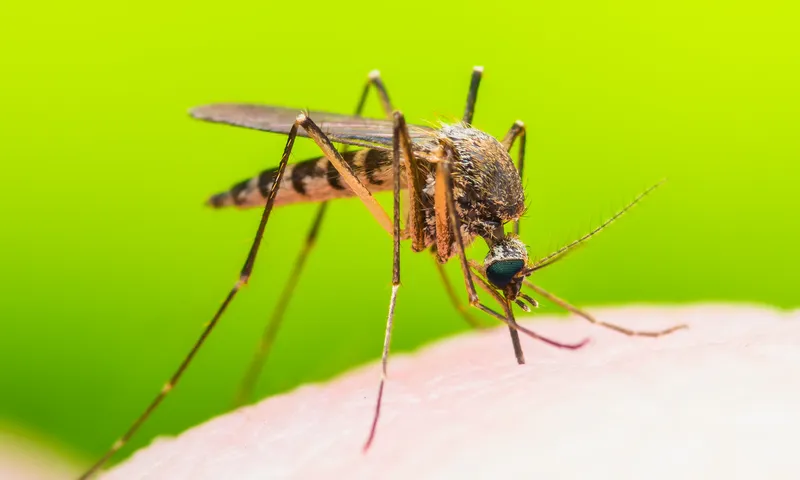Can Malaria Be Treated with Antibiotics

Many infections, including bacterial pneumonia, bacterial meningitis, sepsis, or certain sexually transmitted infections, are commonly treated with antibiotics. Since malaria is a prominent infection with a significant global impact of around 600.000 deaths annually, asking the question whether it can also be treated with antibiotics is reasonable. While the short answer is yes, the whole picture is more complex.
Reading this article will help you understand what malaria is and how to prevent it. Additionally, you will learn if antibiotics can effectively treat malaria, and explore other proven methods of treatment.
What is Malaria?
Malaria is a common disease in parts of Africa, Asia, the Middle East and South America. With around 263 million cases globally in 2023, it's a frequent cause of death, especially among young children. Malaria is transmitted by the bite of female mosquitoes infected with the Plasmodium parasite. More specifically, these parasites are responsible for the common symptoms of malaria, including fever and chills, headache, muscle pain, vomiting, fatigue, and anemia. There are multiple Plasmodium species, of which the most dangerous is P. falciparum. Other types, such as P. vivax and P. ovale, can cause relapses months or even years after the initial infection by remaining dormant in the liver.
How to Prevent Malaria?
Unsurprisingly, prevention is the best medicine for most illnesses, and malaria is no exception. Effective prevention methods consist of multiple measures, many of which aim to avoid or reduce mosquito bites. For example, the consistent use of insect repellent containing DEET, picaridin, or oil of lemon eucalyptus is recommended. Wearing long sleeves and pants and using indoor insect spray, air conditioning window screens, and insecticide-treated bed nets can also significantly reduce someone’s risk of infection.
Besides trying to prevent mosquito bites directly, eliminating mosquito breeding grounds, such as standing water in populated areas, taking prescribed preventive malaria medicine, and educating people on malaria, its prevention methods and local health guidelines can significantly reduce infection rates.
Can Malaria Be Treated with Antibiotics?
Although Malaria can be treated by antibiotics, they are rarely used as a first-line treatment. Instead, they are frequently combined with specific malaria medicines. The reason for this choice is that medications specifically designed to treat malaria act more rapidly and are more effective in severe cases, which can be lifesaving.
However, since they target the parasite inside the body’s red blood cells, certain antibiotics, such as doxycycline and tetracycline, are frequently used in combination with these more specific malaria drugs. Combining these medications can reduce the chance of resistance and improve recovery rates.
The exact combination depends on the type of malaria parasite, the patient's health status, and more. Only in rare cases of drug resistance, pregnancy, or allergies that make typical antimalarial drugs unsuitable are antibiotics used as a first-line treatment and potentially lifesaving backup option.
Proven Methods for Treating Malaria
Once a malaria infection has been diagnosed, antimalarial medication, such as artemisinin-based combination therapies (ACTs), is most commonly used. These drugs not only rapidly reduce the number of parasites in the blood but also lower the risk of the infection returning. Although artemisinin-based combination therapies (ACTs) are most effective and commonly used for uncomplicated malaria cases on a global scale, they are not always licensed in countries where malaria is rare. Instead, other antimalarial drugs, including Chloroquine, Qualaquin, or Lariam, may be prescribed.
When the infection is severe or complicated, intravenous (IV) artesunate is typically recommended, and patients often require hospitalization. In addition to medication that fights the malaria infection itself, patients may also need related care to manage symptoms such as fever and anemia. In severe cases, they may require oxygen, blood transfusions, or other types of intensive care to recover from a malaria infection.
IMPORTANT NOTE: The above information is intended to increase awareness of health information and does not suggest treatment or diagnosis. This information is not a substitute for individual medical attention and should not be construed to indicate that use of the drug is safe, appropriate, or effective for you. See your health care professional for medical advice and treatment.


